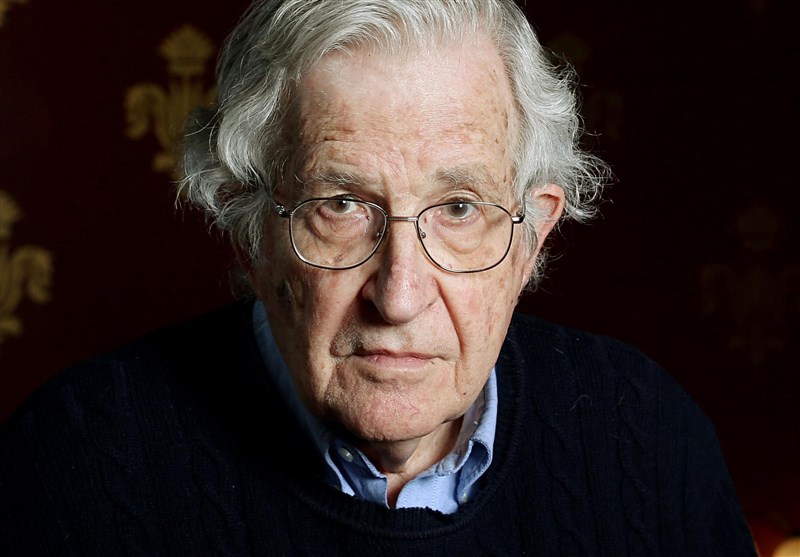Noam Chomsky, a leading American intellectual and political analyst, described US secondary sanctions against Tehran as an “act of war” under international law.
“As I’ve often discussed, the sanctions, in my opinion, are illegitimate in the first place, doubly so because they are secondary sanctions, imposed on other countries because of US domination of the international financial system and other elements of its unique power. That means that they in effect amount to a blockade, which would be an act of war under international law,” Chomsky told Tasnim in an exclusive interview.
Avram Noam Chomsky (born December 7, 1928) is an American linguist, philosopher, cognitive scientist, historian, social critic, and political activist. Sometimes called "the father of modern linguistics", Chomsky is also a major figure in analytic philosophy and one of the founders of the field of cognitive science. He holds a joint appointment as Institute Professor Emeritus at the Massachusetts Institute of Technology (MIT) and laureate professor at the University of Arizona and is the author of more than 100 books on topics such as linguistics, war, politics, and mass media. Ideologically, he aligns with anarcho-syndicalism and libertarian socialism. An outspoken opponent of US involvement in the Vietnam War, which he saw as an act of American imperialism, in 1967 Chomsky rose to national attention for his antiwar essay "The Responsibility of Intellectuals".
Following is the full text of the interview.
US President Donald Trump has imposed fresh sanctions on Tehran over Iran's alleged involvement in the 14 Sept. Saudi oil attacks. What is your take on this?
Chomsky: As I’ve often discussed, the sanctions, in my opinion, are illegitimate in the first place, doubly so because they are secondary sanctions, imposed on other countries because of US domination of the international financial system and other elements of its unique power. That means that they in effect amount to a blockade, which would be an act of war under international law. No action is taken against them in the international arena because of US power. If this was being done by some other country, there would be an international outcry, including UN resolutions and possibly more. That includes China, in partial answer to question three.
It seems that the US is facing political confusion in the face of Iran, as it no longer can affect regional equations. What do you think?
The US has enormous power, but it is not omnipotent. In the case of Iran, the Trump administration states quite openly that it aims to destroy the Iranian economy, provoking an uprising that might produce a regime more compliant with US wishes, like the Shah’s. But military planners are well aware of the risks of a military strike.
Experts argue that the US hegemony is in decline as China is becoming a rising power and that the end of this hegemony means an end to liberalism. What are your thoughts on this?
Chomsky: At the end of World War II, the US had an unprecedented level of global dominance. It was bound to decline and began to almost at once. By the 1970s, the global economy was tripolar: US-based North America, German-based Europe, and Japan-based East Asia. China has indeed risen greatly since, but is still a poor country, with per capita wealth far below the West, and facing internal problems unknown in the more developed countries. In the UN Human Development Index it ranks 86th, right below Algeria and Thailand. In military power, of course, the US ranks supreme, far beyond others – indeed potential combinations of others -- both in scale and technological sophistication. In answer to your question, US hegemony is likely to continue the decline of the past 75 years, while Chinese power is likely to increase. But US global dominance seems fairly secure for as far ahead as one can predict with any confidence. The last phrase is crucial. Unless the world begins to address seriously the two existential crises – global warming and nuclear war -- it won’t matter who dominates what’s left.
Source: TasnimNews



























